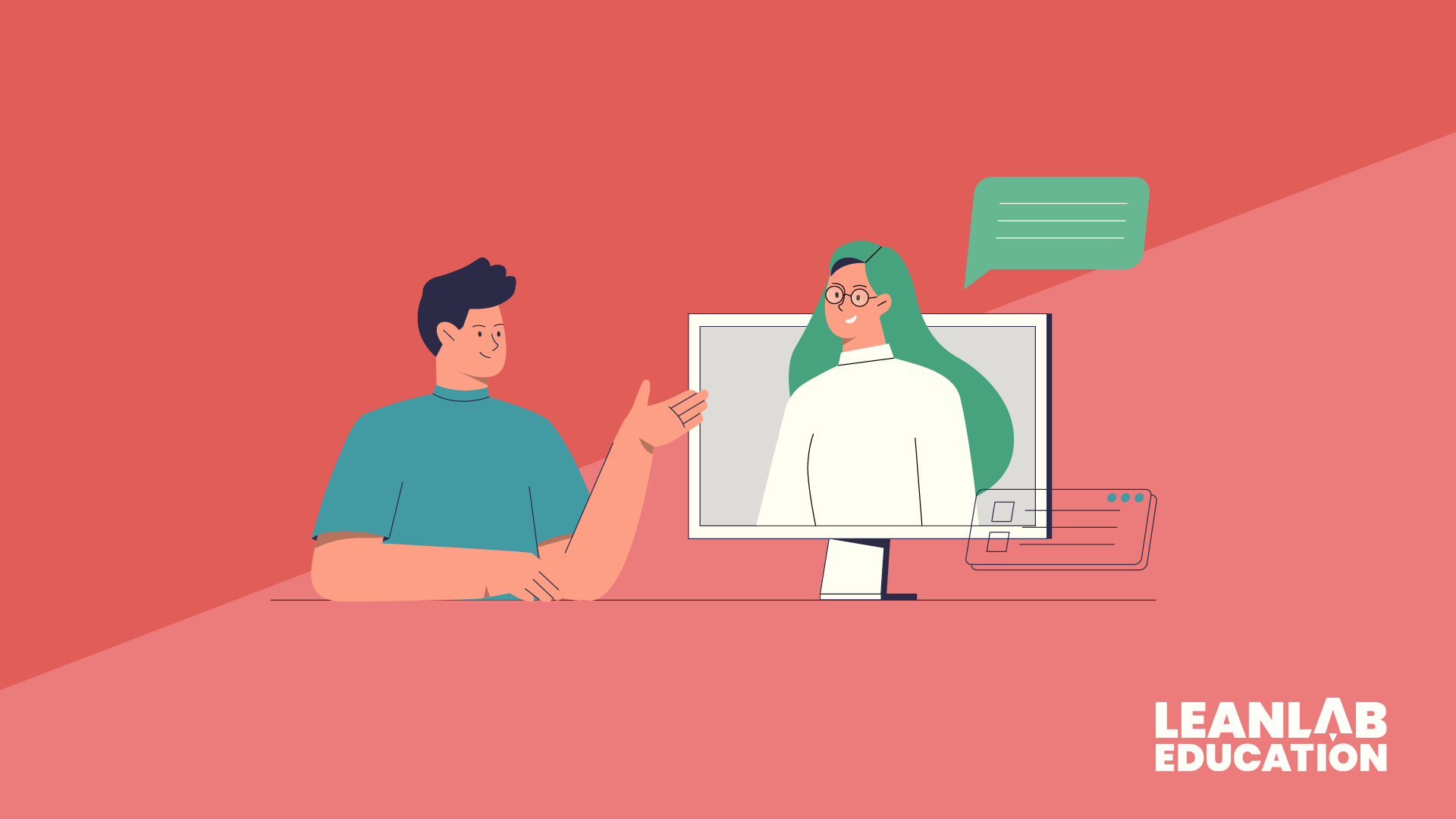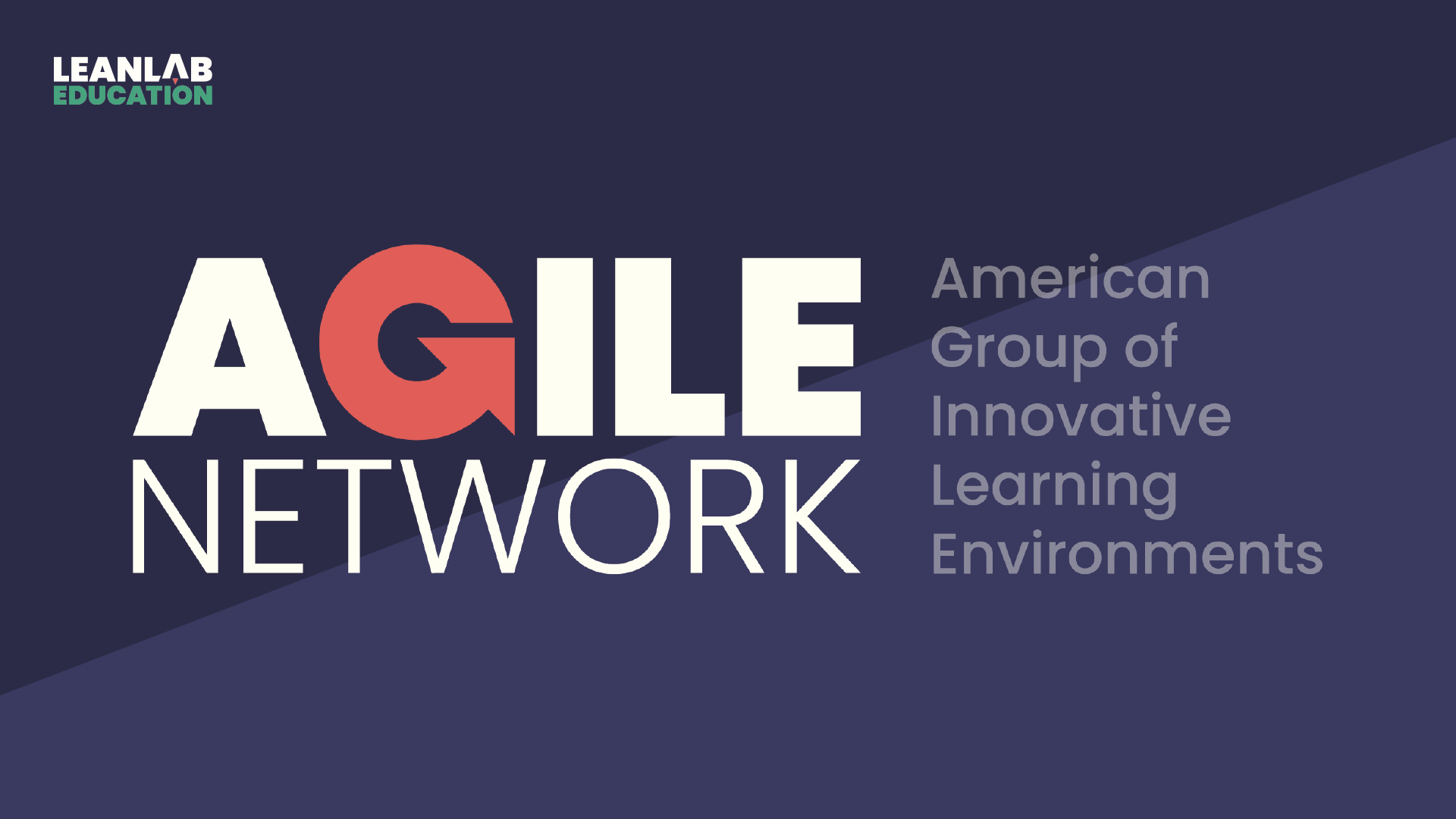We believe that any successful venture in education must contribute to the ultimate outcome of empowering learners to navigate and respond to the needs of an uncertain future.
Everything You Need to Know about the Pilot Research Program
5 Keys To Getting Started With EdTech Fundraising
A New Vision for Edtech Accelerators
The Basics of Building an Evidence-Based Edtech Tool
LEANLAB Awards $92,500 in Grants to KC Schools
Kansas City, MO – LEANLAB Education awarded $92,500 in grants to seven area schools, as part of its inaugural Pilot Research Program, a program which connects K-12 schools with emerging technology startups to conduct research on education technology.
“This program represents a turning point for LEANLAB,” said Katie Boody Adorno, LEANLAB Education founder and CEO. “The expertise of educators is in high demand among education startups that are looking to develop their products. We’ve developed a methodical approach to make sure teachers get paid for expertise and entrepreneurs get the research and data they need to create impactful products.”
During the first year of this new program, LEANLAB has accepted seven schools into its inaugural cohort. Currently, these schools are tackling the following critical issues in K-12 schools.
Citizens of the World Charter School and Guadalupe Centers Elementary partnered with Boddle Learning to find a way to make math assessments more engaging. They implemented Boddle’s 3D math app that teaches math concepts through a fun game?
Lee A. Tolbert Community Academy was seeking to improve academic achievement and partnered with LeverED Learning to implement a math curriculum that allows students to progress at their own pace.
George Melcher and Longfellow, two elementary schools in the Kansas City Public School district, wanted to increase social emotional learning among their students, and they partnered with ClassCraft to implement a platform that gamifies and reinforces positive behaviors.
Three schools in the Clinton County School District (Ellis Elementary, Clinton Middle, and Plattsburg High) along with Gordon Parks Elementary also wanted to increase social emotional learning, so they chose to work with Sown to Grow, a platform that empowers students to set their own goals and reflect on their growth.
These research projects are underway at all seven schools and they’re already seeing the initial results. “I was interested in being a part of the LEANLAB Pilot Research Program because I am always eager to find new innovative ways to meet my students' needs in the classroom,” said Justine Volkman, Kindergarten Teacher at Gordon Parks Elementary. “LEANLAB seeks to understand the pain point that a school is facing and works to find creative solutions for each unique problem. I have already seen powerful student responses to the technology that we have integrated into our classroom and I am hoping to continue to collect more data on my students socio-emotional development as a result of our research.”
Through this program, LEANLAB is aiming to give schools a better way to find and evaluate education technology.
“Educators were stretched for capacity before the pandemic and now we’re asking even more of them. When it’s done right, edtech platforms work with educators to take some weight off their shoulders.” said Stephanie Campbell, Vice President of Communications & Operations. “We want to help schools find, trial, and adopt the best technologies and give them a voice in the development of those products.”
LEANLAB’s research team guides schools through an innovation process that starts with a deep-dive to uncover the root causes behind the school’s biggest challenges. LEANLAB then presents the school with a list of aligned solutions working to solve the problem. After the school chooses a solution, they partner with that company to design and implement a research study.
Though this is the first year of the program, LEANLAB is already busy recruiting schools and companies for the next school year.
“We’re excited to launch such a unique program here in Kansas City,” said Katie Boody Adorno. “We’ve coordinated an unparalleled network of innovative schools across the Kansas City region and plan to expand that network in the coming years across Missouri, creating a hub for education technology and innovation like no other in the country.”
Here’s One Thing Edtech Founders Can Do To Help Families
A Year To Refocus on Community Wellbeing
When things got crazy in the early days of the pandemic, we started doing daily video calls with school leaders. While convening the education community has always been a core principle for us, we knew we needed to get in the trenches on a daily basis given the gravity of the situation that was unfolding.
The goal? To help them figure things out and plan. We pressed pause on our playbook and focused on core needs.
Over the last 8 months, we’ve listened directly to our region’s schools and families, and our nation’s education innovators. As always, we’ve held steadfast to the belief that those closest to education-- parents, students, teachers--are the experts.
True to our core values of human-centered design and boldness, we leaned in to understand their insights to provide direct support when our communities needed it most.
Even though it was a different direction for us, we prioritized basic needs and then we looked ahead at traditional school matters. While we’re not a direct service organization, we knew we had to pivot. We did it the LEANLAB way:
We used research and data.
We served as a convener for our community schools.
We looked to the greatest needs to drive our actions.
Those early calls helped us understand the dynamic needs coming up for schools. Those calls moved us toward the connectivity work for which we might not have otherwise seen the need.
We knew our community was counting on us to shift resources and reconfigure priorities so that’s what we did. It wasn’t perfect. It was messy. We didn’t get everything right.
But we listened. We responded. We took in the data and acted on it--arm-in-arm with our partners.
As a result, thousands of Kansas City kids got connected to the internet and were able to access educational services.
I’m someone whose entire career depends on the ability to connect and communicate. I know first-hand how crucial those skills are for our kids’ future success. I’m honored we could deliver on that promise this year.
Sincerely,
2020 Letter From The CEO
What Art School Taught Me about the Lean Startup
NAME
Naomi O’Donnell
ROLE
Operations & Communications Coordinator
BIO
Naomi brings a passion for creative problem solving and transparent operational systems to her work at LEANLAB. She has worked extensively in higher education administration, at the University of Missouri Kansas City and Indiana University Bloomington, and as an event coordinator with Overflow Companies. Naomi holds a B.F.A from the Kansas City Art Institute and an M.F.A. from the University of North Carolina at Chapel Hill. Outside of supporting educational equity as an operations & communicators coordinator, Naomi is an advocate for LGBTQIA+ rights and the local arts community.
WHY I GRAVITATE TOWARDS THIS WORK…
The creative process is a circular exercise of being open to refining your skillset, making a product, presenting it to your audience and incorporating relevant feedback. I learned the value of this type of adaptive problem solving through my fine arts education, and I believe it is essential to our process at LEANLAB Education.
In 2007, I left the small town of Bloomington, Indiana to attend The Kansas City Art Institute. My arts education took me from Missouri to Michigan, Nebraska, Wisconsin, North Carolina and finally back again, but the common thread of all these programs was inquiry-based learning. I was encouraged by scores of teachers and peers to reject the idea of a “right” answer, in favor of nuanced responses to generalized prompts. This practice encouraged us to explore materials and share our ideas freely. Good work embodied a mastery of material, clarity of intention and originality of execution. It was separate from the obligations of implicit or prescribed standards. I fondly recall a foundations professor at KCAI who tasked our freshman class with painting a representation of our first week on campus. The subtext of this lesson drew on our ability to express the subjective through an objective piece. The assignment resulted in animated conversations that bounced from brush strokes to deep-seated anxieties. The ultimate takeaway, we discovered, was that empathy arises when we see the true colors of others, consider their perspective, and take time to engage.
I see both this generative, adaptable approach to learning and an emphasis on engaging and connecting with others in LEANLAB Education’s mission of supporting innovators and the Kansas City Community. The experimental, measurable values embodied by LEANLAB’s Pilot Research Program echo the creative processes I employed in my arts education. LEANLAB recognizes that the use and trajectory of any product must be shaped by its end user. We foster strong educational solutions that are the result of countless prototypes, strategic discussions, public showings, and revisions. Educators deserve the option to choose from contemporary solutions that have been proven effective. In short, we know that strong educational tools, like works of art, are not made in a vacuum.
LEANLAB Education Announces Innovation Research Program for Kansas City Schools Amid COVID-19
Schools can apply to participate and receive grants up to $25,000
August 18, 2020 | Kansas City, MO -- Kansas City based non-profit LEANLAB Education announced that it will resume its innovation research program for schools despite uncertainty around the new school year. Schools will apply to receive up to $25,000 each in grant funding to complete a nine-month innovation and pilot process. Selected partner schools will work with LEANLAB’s research team and vetted education entrepreneurs to better understand the effectiveness of technologies, tools or services and to share lessons learned with other school communities.
“We’ve seen remarkable ingenuity and innovation from schools this past year,” said Katie Boody, LEANLAB Education CEO. “There’s never been a time in history where schools have been faced with the need to innovate so swiftly and at such a broad scale as they have in the past six months. Now is an ideal time to conduct research and prioritize truly understanding what works -- and in what conditions -- in partnership with students, teachers, and parents.”
To support the program, LEANLAB will leverage $2 million in grants awarded from the Chan Zuckerberg Initiative (CZI) and the Bill & Melinda Gates Foundation, as well as support from the Ewing Marion Kauffman Foundation, to expand its growing network of innovative schools across Kansas City and its unique community-led approach to developing new classroom innovations over the next three years. LEANLAB will work with these pilot schools over the 2020-21 school year to define their biggest problem in need of innovations, match them with an emerging innovator, and study the impact of the solution under the guidance of LEANLAB’s research team.
“What makes this process different from the status quo is our community-driven approach,” said Boody. “Innovation and research often feel like they are either being “done-to” communities or happening in a silo, far removed from the communities they serve. We believe that when students, parents, and teachers are empowered to lead the innovation process in real school settings, we will achieve breakthroughs in the field of education faster.”
This unique approach is what garnered LEANLAB attention from prominent national funders CZI and Gates Foundation. Prior to awarding LEANLAB significant funding to be dispersed across multiple years, each supported previous versions of LEANLAB’s community-driven research model with initial grants.
“Every child should enter adulthood with the knowledge, skills, habits, and agency they need to realize their full potential. We believe that applying what we know from the fields of learning science and human development to education is the most promising way to achieve this vision. In service of this vision, we collaborate with students, educators, and families to create educational tools and experiences that effectively meet the holistic needs of every child,” writes Sandra Liu Huang, head of education and vice president of product for Chan Zuckerberg Initiative.
LEANLAB’s pilot school network evolved from partnering entrepreneurs directly with classroom teachers in previous programming. In 2019, LEANLAB facilitated eight education technology pilots in nine school systems. Solutions piloted ranged from a technology platform to help teachers track the social emotional health of students to an Australian company which creates curriculum to engage students in project-based learning with 3D printers.
Previous research partnerships included KIPP KC which hosted Speak Agent, a digital platform tool that focuses on academic language learning that was piloted in 2019. School leaders and the company’s founders were able to determine that, through the use of the tool, students improved test scores and also demonstrated improvement in engagement and confidence. These collaborative findings were detailed in a research summary report.
“Our model has evolved in the past six years, but our theory of change has remained consistent,” said Boody. “We’ve always believed that those closest to the issues in education--parents, students, educators--hold the true insight and expertise to find solutions. We’re grateful to both our new and long-term funders for their support and advocacy of this important work.”
LEANLAB is currently recruiting school systems across the Kansas City metro area to take part in their 2020-21 pilot program. Selected schools will receive up to $25,000 in grant funding, professional development, and access to a curated list of emerging education innovations. To learn more about LEANLAB’s Pilot School program and to apply, visit their website at: https://www.leanlabeducation.org/schools
Trial and Error: A Student Perspective on Reopening Schools
Thank You, Teachers
LEANLAB Education Helps Local Charter Schools Secure $460k in Funding for Connectivity in Covid-19 Response
PRESS RELEASE: LEANLAB Coordinating Tech Distribution Plan for Local Schools
Crafting Empathy through Design Thinking
Honoring Educators through a “Child-Centered” approach
Making a Living, Building a Future
Bringing Classroom Expertise to EdTech Development
rue human-centered design doesn’t just mean checking in with educators at the early stages of development. Each element of our product, from the text on a button to the prioritization of a new feature, is designed in response to iterative testing with real teachers and students in a variety of classrooms.





















